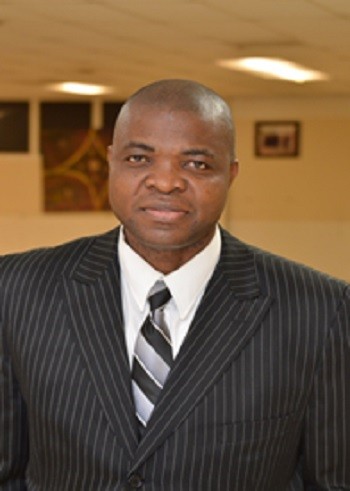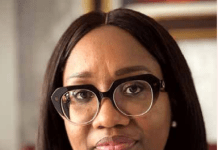
Pharm. (Dr) Iroemeha Christian Ike is the president/CEO of Social Circle Pharmacy in the State of Georgia, USA. While in Nigeria, he was the president/CEO of Richmonds Pharmacy Ltd, Port Harcourt, and currently the president/CEO of Best Outcomes Ventures Ltd, Lagos. An indigene of Isuochi in Umunneochi Local Government Area of Abia State, he bagged his B. Pharm degree from the University of Nigeria, Nsukka. He has also obtained other qualifications, including an MSc in Conflict Management from Kennesaw State University, Georgia, and a PharmD from the University of Tennessee. He is also a graduate of the Harvard Business School programme on Global Leadership.
Before venturing into private pharmacy practice, he worked as a clinical pharmacist in various hospitals in the State of Florida and Georgia, where he also practised as pharmacy manager in various pharmacies. He is a member of several professional associations, where he has played various leading roles in Nigeria and United States. These include: Academy of Independent Pharmacies (AIP) in Georgia and Georgia Pharmacy Association (GPhA). He is a Fellow, Pharmaceutical Society of Nigeria (FPSN), and Fellow, Nigerian Institute of Management (FNIM).
In this exclusive interview with TEMITOPE OBAYENDO, Ike examines some critical issues affecting pharmacy practice in Nigeria, with particular emphasis on curbing illegal manufacturing and distribution of medicines and maximising the potentials of the pharmaceutical industry. Excerpts:
Having obtained your first degree in Nigeria, how was your experience practising in the country before travelling overseas?
Pharmacy practice is universal; the concept is the same, but the method and processes vary from country to country depending on certain factors. These include pharmacy practice laws, regulations and the regulators; the various actors in the pharmaceutical industry, including pharmacists and other stakeholders; and how well-informed the beneficiaries of pharmacy practice (patients/consumers) are.
While I was in Nigeria, to the extent I knew, pharmacy practice was very good because what I saw then was all I knew. But with the benefit of hindsight, I can state that there is indeed room for improvement and all actors must be willing and ready to effect these needed changes by constantly updating the pharmacy laws to meet up with the dynamics of the Nigerian society and also meet up with global best practices. There is need to hire more trained regulators and inspectors to be able to carry out regular inspections to make sure that the rules are being followed.
Secondly, there are too many actors in the pharmaceutical industry. Many people that should not have any business getting close to drugs and poisons are opening up shops everywhere, as drug merchants. Pharmacy practice is not a business; it is a responsible profession. There is need for pharmacists, PCN and other stakeholders to come together to weed off all drug merchants and unprofessional businesspeople in the pharmacy industry.
Also, many of the patients are not very knowledgeable, and do not know their rights. There is need for patient/consumer education and enlightenment, which could empower them to sue for any unprofessional conduct, which will in turn help weed off non-professionals.
As a clinical pharmacist with years of experience, can you describe what an ideal clinical practice should be for pharmacists?
Clinical pharmacy practice is patient-oriented, as the pharmacist provides patient care that optimises medication therapy and promotes health, wellness and disease prevention. An ideal clinical setting should have some basic components which include: Prescribing medications (OTC); administering medication, including immunisation; monitoring prescriptions (MTM); managing drug use (DUR) and patient counselling. It should be where each patient receives some or all the services, depending on their circumstance.
The goal is to bring about a better patient outcome
In a typical community pharmacy here in the U.S., for each patient, there is always a drug utilisation review and patient counselling; and from time to time the patient makes appointment to see the clinical pharmacist for medication therapy management (MTM). The patient comes with all the medications they are taking, including OTC; the pharmacist reviews them for appropriateness, therapeutic duplication, drug interactions, over utilisation, etc., At the end of the MTM session, the pharmacist compiles all the medication the patient is taking, counsels the patient on the medications and if need be, recommend some OTC.
The pharmacist also checks the patient immunisation status and if need be administers a vaccine. Then the pharmacist sends a recommendation to the patient’s primary physician on his MTM findings which could include discontinuing some prescriptions, adding new ones, changing the dose or dosage etc. The goal is to bring a better patient outcome and the physicians usually accept most of the recommendations.
With your knowledge of the Nigerian health sector, do you think Nigeria can attain this standard of practice as is done in the U.S.?
If appropriate conditions that are obtainable here in the United States are made available in Nigeria, I can say yes, Nigerian pharmacists are capable of and can attain the standard of practice as obtained in the United States. Nigerian pharmacists are well-trained and are aware of their professional obligations to their patients, but the condition in the country makes it difficult for them to fully utilise their knowledge and potential. For instance, MTM and DUR use mostly the computer system; all the patient’s medications are profiled in the computer, which makes it easy for the pharmacist to look through them and run DUR and MTM. And the computer system requires constant electricity.
For the Nigerian health sector to attain the standard of practice as is obtained in the U.S. there is need for the government to make a conscious effort to provide the basic amenities like electricity, water, access roads etc.
Pharmacy practice is fraught with challenges in Nigeria, ranging from illegal drug distribution to sales of substandard medicines etc. What solutions can you proffer to these challenges?
Pharmacy practice is a profession, and pharmacists are the custodian of the most sensitive product (drug) that can heal or kill a person. Everyone needs these drugs at some point; therefore this illegal distribution of drugs and sales of substandard products should be seen as a national epidemic like COVID, capable of killing everybody in the country. Hence all hands should be on deck to fight the perpetrators. Nigerian leaders, legislators, judges, the law enforcement agents and other relevant stakeholders should be involved in this fight.
NAFDAC is doing a good job but they do not have the manpower to be everywhere. I recommend that pharmacy practice should not be seen as a business; it is a profession, and non-professionals should be weeded out of the practice. I call on our lawmakers to tighten pharmacy laws to make illegal distribution of drugs, manufacturing and sales of substandard medicines a capital offence.
I also call on Nigerian judges to always set up a special tribunal for illegal pharmaceuticals cases, so as to dispense with them expeditiously.
What are the lessons the Nigerian government and other stakeholders in the health sector can learn from what obtains in the U.S pharma market?
The U.S. drug market is a multi-billion dollar industry that is well regulated; the estimated domestic revenue of the pharma industry in 2020 was about $425 billion. The pharma market adds a lot of mileage to the American economy through billions of paid taxes and millions of jobs it creates.
Every player in the pharma market here is conscious of the rules and makes a conscious effort to abide by them. Not only that, there are well informed consumers/ patients, who are willing to sue for any infraction. There is also a very strict legal system that is willing to award punitive damage. So doing the right thing is an expectation, not an exception!
The distribution system, from the manufacturers to the wholesalers to the distributors and to the retailers, is very seamless. Products are shipped overnight, making it easy for retailers to order what they need, as they need it, without carrying unnecessary heavy inventory; as the ordered products arrive just in time for the consumers.
There are great lessons to be learnt here by the Nigerian government and stakeholders. The pharma market is a goldmine, which the government can effectively harness and reap tremendous benefits from.
If the government invests in the pharma market by providing needed capital and also providing the enabling environment for the industry, the benefits they will reap, in terms of cash (in form of taxes), employment opportunities for Nigerians, and human capital development, will be far more than what they get from oil. Yes, the potential revenue from the Nigerian pharma market is far more than what is obtained from the oil industry today.
The stakeholders should bound together and form different cooperatives and buying groups. They can leverage their numbers and strength to access capital from government and other financial institutions. Also, as a buying group, they can negotiate down the prices of APIs or even finished products, which will increase their profit and also translate to a lower drug cost to the consumer; a win-win.
How would you advise aspiring young pharmacists who want to practise overseas?
As I said earlier, pharmacy practice is universal. Young pharmacists in Nigeria who want to practise abroad are capable of practising anywhere in the world. They should be ready to study hard to be able to pass the equivalency exams and also abide by the pharmacy practice laws in the country of their choosing.
In the U.S., there is the Foreign Pharmacy Graduate Equivalency Exam (FPGE), then the North American Pharmacist Licensure Examination (NAPLEX) and the state laws (MPJE) for each of the U.S. states.
In addition to passing these exams, the young pharmacist should have very good work ethics, and be willing to go above and beyond the call of duty. They should thoroughly investigate the country they want to travel to, and also make adequate arrangements for genuine travel documents and residency permits before jumping into any opportunity that shows up.










